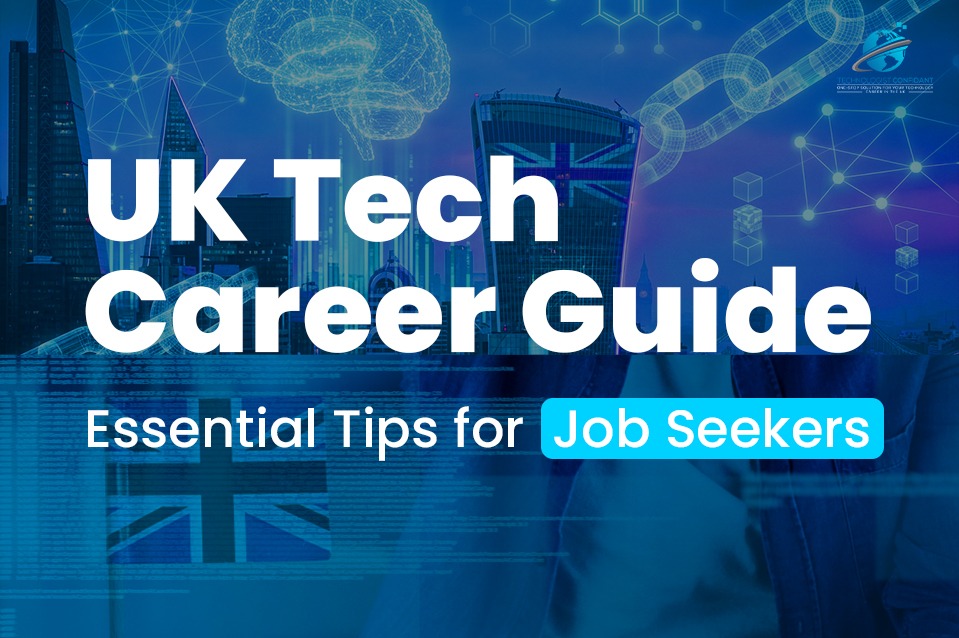The Job Interview: Setting In For The Stage
- In Career Advice
- 14 Apr 2022, 06:18 AM

The majority of traditional career advisers will educate you on preparing for a job interview by following the standard method; Know your resume, do some research on the organisation, and read the job description thoroughly. The team at Technologist Confidant, on the other hand, recommends that readers describe their brand's narrative in a style that demonstrates their subject-matter expertise.
When looking for a new house, people desire unique community amenities and appliances that aren't available in other homes. Similarly, when you go to a job interview, employers look for skills and unique experiences that make you stand out. Therefore, you do everything in your power to prove your point and want to leave a lasting impression on the panel, as well as the impression that you nailed the interview.
During the job interview, "Setting the stage" should be you talking about your work experience as if it were a movie. Introduce your education, experience, and knowledge to the interview panel in a way that allows them to come to know you as a person, not simply a professional. If you have a unique offering or skill set, discuss it as you would a fantastic film you just saw. An interview is an opportunity for an employer to determine whether you are the ideal candidate for the position, and it's also an opportunity for you to ensure if the job and company are a good match for you.
Types of interview
Employers may use a variety of different forms of interviews. You should get ready for the one you're going to. For example, a One-to-one interview where it's possible that you'll just meet with one person throughout your interview. This is normally done in person, which is more common in smaller businesses. Second, Panel interviews where interviews are conducted with a panel of two or more individuals. When you're conversing with the interviewers, make sure you look at them all. They may also request that you give a presentation. Third, Group discussion where a group discussion with other candidates is frequently part of an assessment centre day. You'll have to demonstrate that you can get along with others, present your ideas, and treat others respectfully.
Different kinds of interview questions
When interviewing candidates, employers ask a range of questions. Some organizations may inform you of the type of interview ahead of time, and they may also include information regarding their hiring process on their website. Portals such as Glassdoor, G2, Review.io can also provide candidates with access to numerous interview questions and processes.
Competency-based questions
Since the emphasis is on what you can perform, you'll need to provide instances to demonstrate that you have the necessary skills. If you don't have any examples from the workplace, you can draw on personal experiences. You can find out which competencies they'll be testing you against before the interview.
Strengths-based questions
These questions go into what you enjoy or excel at. Your practical or teamwork skills, for example, or how you perform under duress.
Technical questions
Your job-related knowledge and comprehension of work processes may be put to the test by your employer. This is ubiquitous in science, engineering, law, information technology, and finance.
Situational judgement questions
Employers may inquire about how you would react in common workplace scenarios. This will assess your abilities to solve problems, make decisions, and collaborate with others.
Value-based questions
Value-based inquiries determine whether you share the company's ideals and are familiar with its culture. This is widespread in healthcare positions, especially those in the NHS.
Motivational questions
These allow an employer to know what motivates you and ensure that you'll be a good fit for their organisation.
Prepare yourself for the interview
- Choose a date and time convenient for you so that you can be prepared for the interview and perform at your best on the day of the interview.
- Read the job description and person specification carefully to ensure you're prepared. Make sure you understand the talents and attributes that the employer is searching for.
- Visit the company's website to learn more about its products and services and its future goals. Examine your CV or application form for any questions the company might have.
- Prepare two or three questions of your own to ask at the end of the interview to demonstrate your interest in the position.
- Make sure you understand how to get to the interview location. Plan your public transportation route or find a parking spot. Arrive 5 to 10 minutes prior to the start of the interview.
Additional tips for success
Rehearse with the people who can offer you the finest feedback as you get ready for the show. Practising with a good friend, spouse, mentor, career coach, or former manager or colleague is a splendid idea.
Make a good first impression
An interviewer will judge you within the first few seconds of meeting you, so make an excellent first impression. Dressing for success is an essential aspect of this, so prepare a professional-looking attire and make sure you're well-groomed before the interview. When you first meet with the interviewer, make a strong first impression by smiling and introducing yourself. Also, avoid arriving late because you will not only make a poor impression, but you will also appear frazzled.
Right mindset
This can be tough for some people, especially if they have a lot riding on it. Take a few deep breaths to help you relax. Visualising your accomplishment and realising that rejection is a possibility, but not a certainty, is a smart way to stay composed. If you're apprehensive, don't assume the interviewer is there to be judgemental and unkind, argues Steve Errey of "The Daily Muse." The recruiting manager isn't your adversary; in fact, they're probably expecting to be impressed.
Research the employer
The importance of conducting research prior to an interview cannot be overstated. If you've done your job interview preparation correctly, you should be able to exhibit your knowledge and impress your potential employer during the interview. Begin by Googling the company and looking at its website, social media profiles, and other online material. You should endeavour to get a clear idea of the company's objectives and values. This will not only demonstrate to the employer that you know your way and are serious about joining the organisation, but it will also assist you in formulating any questions you may have.
Some effective conversation starters will help you break the ice
Because first impressions matter, you'll want to start on the right foot at your interview. Still, job interviews may be an uncomfortable conversational atmosphere, so coming up with a good conversation starter might be difficult. When you're nervous, it's challenging to make an excellent first impression. According to Rachel Gillett of Business Insider, the trick is to make the job interviewer feel like they have your complete attention; perfect conversation openers include mentioning a piece you enjoyed on their company's blog or social media channels.
Sell your skills and abilities
Though this concept may seem self-evident, many people find selling themselves to be a complex undertaking. Keep in mind that the interview is your opportunity to show why you're the most extraordinary applicant for the position. A job opening is seen by recruiters as a problem, a gap that needs to be filled, so you must position yourself as the answer to their problem. You should be thoroughly familiar with your CV and the job description. Use these materials to help you get through the interview, and choose instances of your experience or education that show why you'd be a good fit for the job. Make sure each pitch is tailored to the position you're applying for. Choose examples that are appropriate for the role and the organization and its ideals.
Answer interview questions using STAR method
After you've familiarised yourself with your CV and the position you're interviewing for, you'll need to practise answering common interview questions. Each time you mention one of your capabilities, you should back it up with an example to show the interviewer that you are serious about your abilities.
The STAR method is a common strategy for demonstrating your abilities
First is the situation, give some background to the story you're about to tell by describing your location and why you were there. Second is the task, explain what you were doing and any difficulties you encountered. The third is action, describe the steps you took to finish the assignment and how you dealt with any obstacles you encountered. Finally, the results, reveal the outcome; this should demonstrate your abilities and what you accomplished and what you learned from the circumstance.
Nerves of steel
If you've gone through all of the proper job interview preparation and feel knowledgeable and confident, you shouldn't be too apprehensive. Interviews, on the other hand, can be nerve-wracking (especially if it's for your dream job). As a result, learning to regulate your nerves, so they don't get the best of you is crucial. Maintaining a calm and confident demeanour is important, so pay attention to your breathing. Take a few deep, slow breaths if you start to feel agitated.
Please pay attention to the interviewer's questions, so you don't miss them, and concentrate on the responses you've prepared. It can also help you relax and feel more at ease around your interviewer if you develop a rapport with them. Maintain a level head and attempt to rationalise your anxieties. Remember, if the firm weren't interested in you and your CV, you wouldn't have been invited in for an interview. Control the conversation's pace to give yourself enough time to respond effectively and calmly. Regardless of how worried you are, you should not speed through the interview.
Slow but steady
When it comes to job interviews, take your time and do it well. According to Shana Lebowitz of Business Insider, this method is especially beneficial to shy people since it allows them to show the interviewer that they're secure enough to handle the pauses and interested enough to think about each answer thoughtfully. You risk sounding incoherent and frightened if you speed through your chat.
A positive ending
Learn about the next steps and when you can expect to learn about the interview's outcome. Once everything has been completed, thank them for taking the time to meet with you and inform them that you expect to hear from them shortly. Exit with a handshake and follow up with a phone call or an email to get feedback.
What may play to your advantage
- Know your own brand story through and out and be able to articulate it to the interview panel with ease. They want to know who you are, where you attended school, what you've done in the past, and where you plan to go in the future.
- Recognize the approaches and technicalities mentioned in the job posting. Acquire proficiency in assessing processes and industry life cycles, as well as technology implementation.
- Describe how, depending on the company's offerings and mission, you can provide value to it. Explain how your experience, education, and expertise may help the organisation move forward when a company offers service and you have that expertise.
Job interviews are an opportunity to impress the panel with your business acumen and innovative ideas. So consider what kind of personnel the firm would want to represent its brand, and then pitch yourself as a fan or supporter for it.





